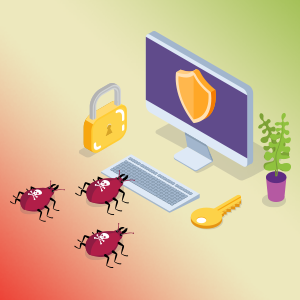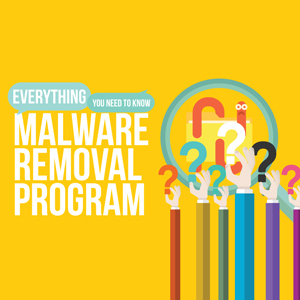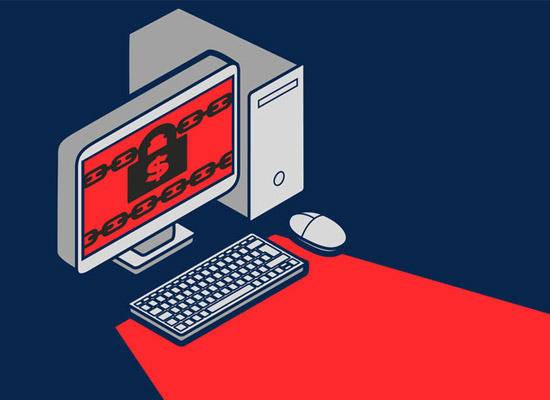What is the Best Anti Malware Tool
Updated on January 5, 2023, by Xcitium
The anti malware software defends the computer against varieties of malware. It deep scans the hard drive and files that enter the computer. By doing so, threats are identified in no time. But do you know how anti malware software combats malware? Find out what techniques anti malware uses to provide complete malware protection.

How the Best Anti Malware Tools Work
Signature-Based Detection
The signature-Based Detection technique is the oldest anti malware detection technique. However many of the best anti malware tools still use it because it’s effective at detecting known threats. Traditional threats carry a virus signature that identifies them. So when a known threat enters the computer, Signature-Based Detection recognizes it by its signature. The signature collected is sent to the cloud-based platform that contains a list of anti malware signatures. If the signature matches any of the signatures in the list, it is flagged as a threat. That’s how Signature-Based Detection works. Although the fileless anti malware proliferation may render Signature-Based Detection obsolete soon.
Heuristics
Heuristics is a defense against undiscovered threats and Polymorphic malware. Every day, thousand new malware are spread on the Internet. Updating the virus signature platform can be difficult. In an instance that a threat with an unregistered virus signature enters the computer, Heuristics monitors how the file behaves in the computer. The moment it displays a harmful behavior, it triggers the sandbox to contain it. For example, a Polymorphic malware can mutate its signature to bypass Signature-Based Detection. However, when it shows a harmful behavior in the computer, Heuristics will constantly monitor it.
Sandbox
The sandbox is a protected space within the computer that sets a suspicious file apart from the other legitimate software to avoid malware infection. When heuristics scanning suspects the file as malicious, it is sandboxed. The file contained within the sandbox has zero idea that is running within the cell. So if it continues to show malicious activities, it is flagged as threat and removed from the computer. A sandbox enables close analysis to determine if the file is safe or not. Almost all of the best anti malware tools use a sandbox technology.
Removal Tool
- Just as the name implies, removal tools eliminate the threat from the computer. Once the malware is identified, it is deleted from the system without a trace. At last, the malware is out of the computer and the files are safe!
- Now that we already have better ideas on how the best anti malware tools work. Are you ready to download the best anti malware software? Among all the anti malware software, what to choose?
Xcitium Advanced Endpoint Protection
- Xcitium Advanced Endpoint Protection, designed to counter today’s age malware, uses only the best anti malware tools to protect the computer. It has multi-layered defense to combat sophisticated malware. It has Auto-Containment that never leaves a window open for malware infection by containing any untrusted file that reaches the computer.
- During the demo at Massena Memorial Hospital, Xcitium Advanced Endpoint Protection stood out among the other renowned anti malware software. The Massena Memorial Hospital is located in New York with 370 endpoint devices. They are aware of the number ransomware attacks that have occurred malware, so they decided to get advanced endpoint protection malware. When the IT staff infected his computer with ransomware, the Auto-Containment system instantly contained it malware. Massena Memorial Hospital malware chose Xcitium Advanced Endpoint Protection after the demo.
- The Auto-Containment feature is built upon Default Deny that renders zero-day threat malware on the computer. Unlike the other sandbox technologies that are built on malware Default Allow posture malware, the Auto-Containment system only permits the file to run in the computer once it is confirmed safe malware.
- Xcitium being aware of the proliferation of sophisticated malware, developed another advanced feature that defends the computer memory and registry against fileless malware. It is called HIPS or Host Intrusion Prevention System. It monitors the computer memory and registry constantly against modification. It also protects the keyboard against Keylogger, a type of malware that records keystrokes to steal passwords and important credentials.
- A small network vulnerability may render all the devices connected to the network useless, that’s why Xcitium Advanced Endpoint Protection has a packet filtering firewall that monitors the network traffic to combat inbound and outbound threats. All data that are transmitted within the network is filtered by the firewall to prevent malicious activities.
- Many anti malware software promise advanced malware protection, but choose only the best for your computer and network. Download Xcitium Advanced Endpoint Protection.
Get Free Trial Now Free Forensic Analysis
Related Resources


